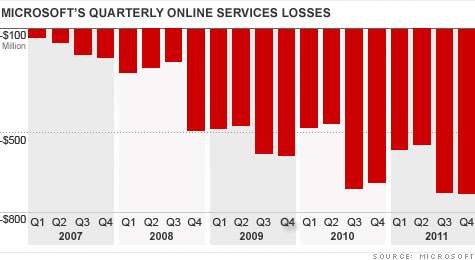Microsoft’s negative $5.5-billion-and-counting search engine has come a long way since its initial implementation in 2009, more than doubling its initial market share of 8.4%. The problem is that market share has not been chipped away from Google.
Now with the recent implementation of Bing Webmaster Tools and the brand new Disavow Links tool, Bing is really shaping up to take things to the next level with their engine. Google has been frustrating webmasters everywhere with Panda and Penguin, and now with the possibility of negative SEO on many minds a way to ask search engines to ignore ‘bad’ links is necessary.
I believe this move is meant to show consumers that Bing is more agile than Google and listens to consumers, with the obvious long term goal of increasing the Bing user base while at the same time lowering that of Google. Bing has also integrated many social signals directly into its search result pages, and forged numerous partnerships to deliver a better overall search experience. The coming months should be interesting to see how the search engines evolve, but I feel that Bing is definitely on the right track to become a true competitor to Google.
[stars]

It is going to be very interesting to see where Negative SEO plays out. It’s like everyone peeing on trees is just going to create a giant cess pool.
For the moment, most of us are not going to have a competitor invest in negative SEO against us. Most of the low quality links that come up for your site are going to be results of poor SEO by their own people or outsourced company that doesn’t know what they are doing.
Having a clean link profile history from authoritative sites generated consistently (‘organic’ pattern) overtime is going to out-weigh most any negative SEO campaign.
However, negative SEO is not to be taken lightly. Especially for a company with a site having mostly low quality links – could greatly be affected by negative SEO to be pushed just over the edge…
Stephen Geldersma